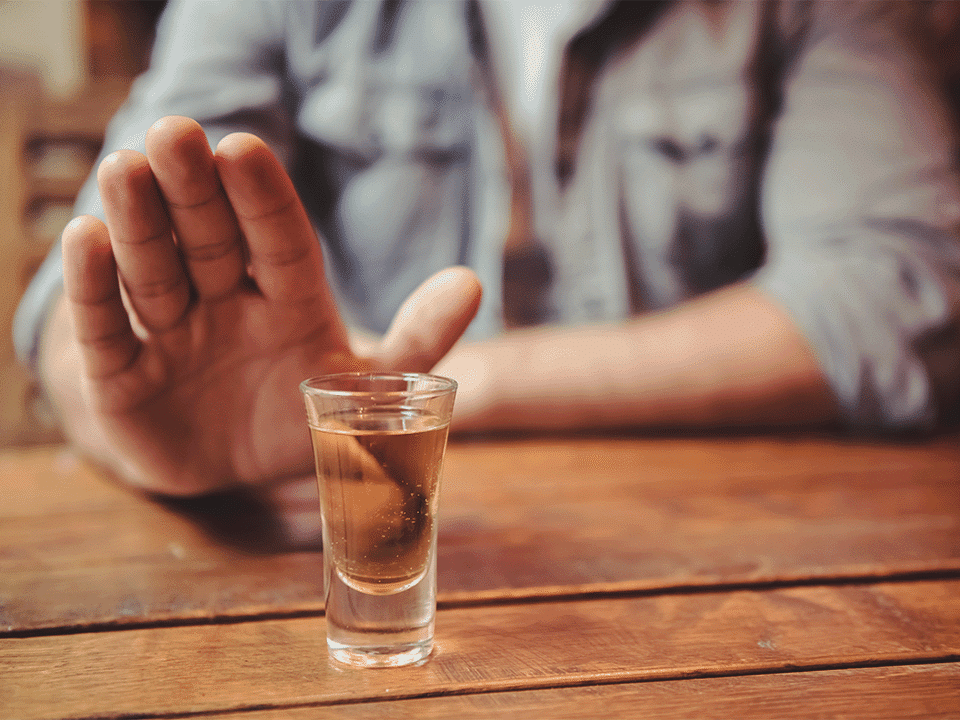Excessive alcohol consumption can have a systemic impact on the human body, affecting everything from your cardiovascular system to your digestion. These issues can lead to long-term health conditions and can impact every aspect of your life.
The short-term effects of alcohol can include physical issues like vomiting and headaches and could even lead to alcohol poisoning. Behaviorally, you might experience lower inhibitions, intense feelings, and a greater tendency to take risks. Long-term effects of alcohol include a range of physical health conditions and cognitive impairments.
Understanding how alcohol affects the body can help you stop drinking. Let’s take a look at some of the outcomes that can occur.
Organs Affected by Alcohol
Alcohol has the potential to affect almost every organ in the body on some level. We’ll dive into its specific effects in each section, but this table can help you understand the impact at a glance.
| Organ | Short Term | Long Term |
|---|---|---|
| Brain | Loss of coordination, slurred speech, blurry vision | Dependence, leading to serious problems when people try to quit |
| Heart | High blood pressure and a spike in blood cholesterol at high levels | Weak heart muscles and an abnormal heartbeat |
| Liver | Stress from processing alcohol | Liver damage, such as jaundice |
| Pancreas | Stress from processing alcohol | Pancreatitis |
Central Nervous System and Brain
Alcohol is a depressant that causes various effects on the brain. It can reduce a person’s inhibitions, slow their reaction time, and often make them feel more relaxed. An alcohol addiction can cause problems with an individual’s brain function, nerve function, and mental health.
Alcohol depresses the central nervous system, which slows breathing rates and heartbeat. It also works directly on neurotransmitters in the brain, impacting portions that handle memory, decision-making, impulse control, and attention. Those changes are partially responsible for why people feel loose, uninhibited, and silly while drinking.
Researchers say long-term drinking can lead to damage that makes quitting tough. For example, alcohol can dull the amygdala in the brain, which helps to regulate stress responses. When people quit drinking and that part of the brain wakes up, people can feel intense negative emotions that only drinking seems to ease.
Long-term drinkers can also face problems with the prefrontal portion of the brain, which regulates decision-making and impulse control. This damage makes it hard for people to quit drinking or make good decisions about how much they drink. Researchers say this damage can persist after years of abstinence, complicating recovery.


11 Signs You Might Have a Drinking Problem
Brain Damage
Chronic and high-level alcohol use has many impacts on the brain, with effects ranging from short-term issues to long-term damage.
Alcohol-related brain damage (ARBD) is an alcohol-related condition most common among people between 40 and 50 years old. Several factors could be at play, including the following:
Damage to nerve cells caused by alcohol exposure
Damage to blood vessels, causing high blood pressure or stroke
Low levels of thiamine, which the brain needs to work properly
Increased risk of head injuries
ARBD can cause dementia-like symptoms, but they won’t worsen in time (as dementia and Alzheimer’s symptoms often do). With proper treatment and continued support, some of the effects of ARBD can often be reversed.
Wernicke-Korsakoff Syndrome
Wernicke-Korsakoff syndrome is a specific type of alcohol-related brain damage caused by a vitamin B1 (thiamine) deficiency. Researchers say up to 2% of the worldwide population has this disorder.
2%
As much as 2% of the worlds population has Wernicke-Korsakoff syndrome
Conditions associated with malnutrition (like cancer and anorexia) can cause Wernicke-Korsakoff syndrome. However, the most common social factor associated with it is alcohol abuse. Wernicke encephalopathy symptoms include the following:
Confusion
Loss of muscle coordination
Vision changes
Alcohol withdrawal signs (such as hallucinations)
As acute Wernicke encephalitis symptoms fade, Korsakoff syndrome symptoms can begin, including the following:
The inability to form new memories
Loss of memory
Hallucinations
Confabulation (inventing stories believed to be memories, not intending to deceive)
Blackouts and Memory Lapses
A person acting with a combination of heavily impaired judgment, poor motor function, and significant memory lapses is a potential danger to themselves and those around them.
Excessive drinking can cause what are called blackouts. In reference to alcohol use, this term refers to a gap in a person’s memory, caused by being so intoxicated that the brain’s method for transferring short-term memories to long-term memories becomes blocked.
During these memory lapses, a person is conscious (although likely with heavily impaired motor function and judgment). However, they may not remember parts of what they experienced later.
Blackouts may signal other issues with alcohol, such as alcohol use disorder, but this is not always the case. Blackouts signal that a person drank far too much alcohol and that they need to adjust their drinking habits in the future.
Neuropathy
Alcoholic polyneuropathy is a condition where nerves start to malfunction in the body due to chronic alcohol consumption. It can cause pain, muscle weakness, and reduced coordination in affected areas, sometimes to the point where it is difficult to walk and stand.
The long-term prognosis is favorable if a patient gets properly treated, with the primary focus being on stopping alcohol abuse. It’s estimated that 25% to 66% of chronic alcohol users in the United States experience some form of neuropathy. Continuous drinkers are more likely to be affected than episodic drinkers.
How Alcohol Use Causes Neuropathy
Exactly how alcohol can cause neuropathy isn’t known. Broadly, alcohol causes damage to nerves in the body, which can then lead to the condition. Some more specific hypothesized explanations include the following:
Oxidative stress leads to free radical damage to nerves
Activation of spinal cord microglia after chronic alcohol consumption
Activation of mGlu5 receptors in the spinal cord
Activation of the sympathoadrenal and hypothalamic-pituitary-adrenal (HPA) axis
Nutritional deficiency can also contribute to the condition. Thiamine deficiency is much more common among people with alcohol use disorder (AUD) who are malnourished than in the average American. The direct toxic effects of alcohol may also contribute to the condition.
Signs and Symptoms of Alcoholic Neuropathy: What to Look Out For
Alcoholic neuropathy will often start with subtle symptoms and then generally worsen over multiple weeks or months. Issues will typically begin in the lower extremities. Some very common early signs are pain, pins-and-needles sensations, and numbness in the toes.
If allowed to progress, alcoholic neuropathy will become more obvious.
You may develop difficulty walking or start to feel notably weaker and less dexterous in affected areas. If you experience any of these symptoms, talk to a doctor right away. Even if you don’t have alcoholic neuropathy, these symptoms signal something is wrong.
Diagnosing and Treating Alcoholic Neuropathy
No individual test can detect alcoholic neuropathy. Once a doctor helps a patient identify that they have some form of neuropathy, they will ask questions and potentially perform some tests to start ruling out alternative explanations. Common tests conducted to get a diagnosis include the following:
STD testing, specifically for HIV and syphilis
Heavy metal testing
Nutritional testing
Diabetes testing
Chemistry panel
Nerve conduction testing
Needle electromyography (EMG)
When trying to determine if you have alcoholic neuropathy, your doctor will ask you about your alcohol consumption habits. Two of the most important pieces of information are how much alcohol you tend to drink and how long you have been drinking in that way.
Mental Health
Sustained alcohol use can harm your mental health. This can include both short-term and long-term effects. People who have existing mental health conditions like anxiety may drink to feel differently, but the reality is that alcohol can exacerbate those symptoms.
People who struggle with issues like anxiety and depression and also drink alcohol may find that they begin to feel better in the days and weeks after they stop drinking. If your symptoms persist even after you quit, then you can speak to your general physician to learn healthy, productive ways to manage your condition.
It’s important to understand some of the more severe effects that alcohol can have on your mental health. Sustained periods of serious alcohol use can lead to issues like psychosis, for example. Heavy drinking can also lead to thoughts of suicide or self-harm, especially if someone also suffers from a co-existing mental health condition like depression.
Cardiovascular System
Excessive alcohol consumption can have detrimental effects on heart health, presenting several potential risks. We’ll explain all of these risks in a moment, but this table can help you understand the long-term and short-term cardiovascular risks drinking can cause.
| Short-Term Risks | Long-Term Risks |
|---|---|
| Increased blood clotting | High blood pressure |
| Irregular heartbeat | Cardiomyopathy |
| High cholesterol | |
| Weight gain | |
| Weakened immune system |
Heart Health
It’s critical to understand the effects of alcohol on your cardiovascular function. Heavy drinking can lead to a range of issues that could be long-term and potentially life-threatening. Some outdated research suggests that moderate drinking can slightly benefit your heart health, but this is no longer a widely held belief. Researchers now know that any amount of alcohol can raise your risk of developing heart disease.
High Blood Pressure
Alcohol has multiple mechanisms that can contribute to the development or exacerbation of high blood pressure, including:
Stimulation of the sympathetic nervous system
Disruption of hormonal balance
Dehydration
Weight gain and obesity
Interference with medications
Increase in insulin resistance
While moderate alcohol consumption may have minimal impact on blood pressure for some, heavy drinking significantly raises the risk of hypertension.
Irregular Heart Rhythm
Alcohol can cause irregular heart rhythms in the following ways:
Disrupting the heart’s electrical signals
Causing imbalances in electrolytes
Stimulating the sympathetic nervous system
Damaging the heart muscle
Interacting with medications
Even moderate alcohol consumption can sometimes trigger irregular heartbeats.
Increased Triglyceride Levels
Alcohol can raise triglyceride levels in several ways. First, excessive alcohol intake adds extra calories and contributes to weight gain, leading to an increase in triglycerides. Next, alcohol disrupts how the liver processes and removes triglycerides as well as interferes with metabolic processes.
When alcohol use disrupts diet choices, causing a nutritional imbalance, triglyceride levels may rise.
Increased Risk of Blood Clotting
Alcohol use in any amount can increase the risk of blood clotting for these reasons:
Promotes the clumping of blood platelets
Disrupts the normal clotting process
Raises triglyceride levels
Causes dehydration
Impairs liver function
Interferes with blood-thinning medications
Alcohol-Related Heart Disease
The American Heart Association says some people have alcohol-related heart disease and no symptoms. In a study of 2,525 adults, those in treatment for alcoholism had 10.3% more evidence of heart injury and 69.2% higher markers for inflammation when compared to others. They did not have symptoms.
More Heart Damage in People With Alcohol Use
Higher Inflammation in Asymptomatic Drinkers
The Centers for Disease Control and Prevention says people with heart disease may experience symptoms like the following:
Chest pain
Upper back or neck pain
Indigestion
Heartburn
Nausea
Fatigue
Dizziness
Shortness of breath
Fluttering feelings in the chest
Swelling in the feet, ankles, legs, abdomen, or neck
Cardiomyopathy
Cardiomyopathy is a disease that prevents the heart muscle from pumping blood efficiently. Over time, this can cause the heart to enlarge, thicken, or become stiffer than normal. In turn, this makes it more difficult for the heart to pump blood throughout the rest of the body.
Excessive and prolonged drinking can cause this condition by directly damaging the heart muscle and weakening its ability to pump blood. Additionally, alcohol can lead to nutritional deficiencies, which further contribute to cardiomyopathy.
Alcohol also produces harmful byproducts that cause oxidative stress and damage the heart cells while disrupting the regulation of calcium in the heart, which leads to abnormal heart muscle function.
Liver Health
In a 2023 study of 96,610 individuals in the U.S. who died from liver disease, researchers found that 44.5% of those deaths involved alcohol. The liver serves a critical function in your body and is responsible for breaking down substances, including alcohol.
However, excessive alcohol consumption can force the cells in a person’s liver to work harder than normal. Over time, this can damage a person’s liver cells, which can cause them to develop health issues.
Alcoholic Liver Disease
Alcoholic liver disease refers to a spectrum of diseases that occur due to liver damage as a result of long-term alcohol abuse. This condition is very serious and represents one of the biggest long-term dangers of abusing alcohol.
The risk of alcoholic liver disease increases with consumption. In other words, the more you drink, the harder it can be on your liver.
Researchers with the American Liver Foundation say that most heavy drinkers will have some type of liver disease. Three main types of liver damage exist:
Alcoholic fatty liver disease
This involves increased fat accumulation in liver cells.
Alcoholic hepatitis
This involves inflammation and early liver scarring. Mild forms can be reversed with abstinence, but severe forms can cause liver failure.
Alcoholic cirrhosis
This involves extensive scarring that disrupts the normal structure of the liver.
In the past, researchers thought men were more susceptible to liver disease than women. However, the gap between men and women is closing. As women begin to drink more alcohol than they did previously, they’re developing liver disease at higher rates.
Alcoholic liver disease is often diagnosed in people between the ages of 40 and 50 but it can occur earlier or later in life, depending on your drinking habits.
Cause of Alcoholic Liver Disease
As the name implies, alcoholic liver disease is caused by the damage alcohol can do to the liver over time. Eventually, this damage can be significant enough to cause serious and even life-threatening harm to a person’s liver.
Notably, alcoholic liver disease can occur even if a person doesn’t get noticeably drunk regularly. Alcohol can still tax the liver if a person drinks often, even if they avoid binge drinking and similar practices. It also appears that some people may inherit an increased risk of developing alcoholic liver disease.
Symptoms of Alcoholic Liver Disease
The early stages of alcohol liver disease don’t always cause significant symptoms, although symptoms often become more pronounced after a period of heavy drinking.
Common early signs of alcohol liver disease include the following:
Nausea
Belly pain
Poor appetite
Weight loss
Fatigue or lethargy
Blood vessels appearing on the skin in a spider-web-like pattern
More advanced liver disease can cause symptoms such as:
Edema (fluid buildup in the legs)
Ascites (fluid buildup in the abdomen)
Jaundice (yellowing of the eyes, skin, and mucous membranes)
Redness on the palms
Impotence
Shrinking of the testicles
Breast swelling
Confusion
Pale or clay-colored stools
The final stages of alcohol liver disease can cause liver cirrhosis and what is called end-stage liver disease (ESLD).
Liver Disease Diagnosis
The diagnostic process to detect alcohol liver disease can involve checking for several different signs. Generally, a doctor will begin with a physical exam. They will look for some of the more obvious visual signs of alcohol liver disease, such as swelling, jaundice, shrunken testicles, and other visual indicators that a person may have alcohol liver disease.
Diagnosing liver disease can involve the following tests:
Complete blood count to rule out infections and identify complications
Liver function tests to determine how well the organ is working
Prothrombin time to assess how serious the problem is
Ultrasound to look for liver tumors or obstructions
Metabolic profiles to assess kidney failure
Screening blood tests to rule out other diseases
Endoscopy to look for bleeding
Biopsy to diagnose the problem when other tests are unclear
Treatment of Alcoholic Liver Disease
If a person develops end-stage liver disease, they may need a liver transplant. One of the more important steps in treating alcohol liver disease is changing one’s habits. For the best prognosis, a person will generally need to radically change the amount of alcohol they drink.
If a person needs a liver transplant, they can often only get approved for one after a period of sobriety lasting at least six months. Even if they don’t need a transplant, drinking alcohol at the rate that led them to develop alcoholic liver disease will cause their condition to worsen and is likely to eventually become life-threatening.
A doctor may prescribe several treatments as appropriate to combat a person’s symptoms, including prescribing diuretics to reduce fluid buildup, vitamin K or blood products for excessive bleeding, medications to help reduce mental confusion, and antibiotics for infections.
Potential Complications of Alcoholic Liver Disease
Alcoholic liver disease can cause significant complications, including the following:
Hemorrhages
Fluids in the abdomen (also known as ascites)
Infections (also known as spontaneous bacterial peritonitis)
Kidney failure
Swelling
Brain injuries (also known as hepatic encephalopathy)
Alcoholic hepatitis and cirrhosis mean a person has caused extensive damage to their liver as a result of alcohol consumption. This can mean the liver will be unable to fully heal and return to its normal function.
Alcoholic liver disease exists on a spectrum, and so does a person’s prognosis if they suffer from it. Caught early and with the right interventions, a person can have a relatively good prognosis.
However, prognosis worsens significantly in people who develop cirrhosis, especially in those who cannot stop drinking. Cirrhosis is most life-threatening to women and the elderly.
Survival rates used to be significantly lower for late-stage alcoholic liver disease before liver transplants were viable. However, the demand for liver transplants exceeds the current supply. A person must stop drinking if they’re to be considered for a transplant.
Hepatitis
Alcoholic hepatitis is a medical term that describes liver swelling. Chronic, intense alcohol ingestion is typically the trigger.
Some people with alcoholic hepatitis develop visible symptoms, such as yellowing skin. But others have the condition without such prominent signs. No matter whether you can see it or not, alcoholic hepatitis is serious. People who keep drinking can lose their lives due to organ damage.
Most people who develop alcoholic hepatitis are ages 40 to 60, but people as young as 20 and as old as 80 have experienced the issue.
Risk Factors for Alcoholic Hepatitis
Heavy drinking over a prolonged period is the biggest risk factor for alcoholic hepatitis. People who engage in this habit can harm their livers with time. But other issues can raise the chances of liver problems.
Risk factors associated with alcoholic hepatitis include the following:
High body mass index (BMI)
Alcohol contains empty calories, and weight gain is common. People with a high BMI put added strain on the liver, increasing the risk of hepatitis.
Sex
Women have a higher risk of hepatitis than men do.
Genes
People with a specific variation in the PNPLA3 gene are at a higher risk of developing alcoholic hepatitis. This gene is part of the digestive system that helps to remove toxins. This problem can’t be cured. People who know their parents had liver problems should approach alcohol with care.
Heavy abuse
People with a history of drinking can develop hepatitis after binge drinking. A weekend of indulgence could be enough to spark a problem.
Symptoms of Alcoholic Hepatitis
Doctors can diagnose alcoholic hepatitis by skin color. People with sudden yellowed skin (called jaundice) and a history of heavy drinking likely have alcoholic hepatitis.
The amount of liver inflammation dictates symptom severity. The bigger your liver, the more uncomfortable you’ll be. Common symptoms include the following:
Anorexia
People with alcoholic hepatitis don’t want to eat.
Abdominal pain
Discomfort in the stomach or sides is common. Nausea and vomiting can make this pain worse.
Weight loss
Poor appetite combined with vomiting can lead to significant weight loss. Malnutrition is also common.
Ascites
This term refers to fluid accumulating in the abdomen. It can look like sudden weight gain.
Confusion
A swollen liver can’t remove toxins. Sometimes, that leads to disorientation.
Alcoholic Hepatitis Health Complications
The liver is a key part of your body. Swelling and dysfunction can lead to significant health problems. Common complications include:
Gastric varices
A clot or scar tissue blocks blood flow to the liver. The body detours the blood into tiny vessels, which can burst and bleed.
Esophageal bleeding
Some people develop intense bleeding deep within the throat and esophagus.
Coagulopathy
As the liver begins to fail, the body loses the ability to clot blood. Any tiny cut can lead to intense bleeding.
Hepatic encephalopathy
When the liver isn’t working properly, toxins build up in the blood and brain. Confusion and forgetfulness are common, but physical symptoms can include slurred speech and shaking hands and feet.
Liver cancer
When damaged tissues aren’t repaired properly, cancerous changes can appear. Dysfunction can worsen.
Treatment Options for Alcoholic Hepatitis
Alcoholic hepatitis requires hospital treatment. People are at risk of dying from this condition, and they need around-the-clock care to get better. The following treatment options are typically provided to manage alcoholic hepatitis:
Steroid medications to reduce swelling
Nutritional support and hydration for vomiting and anorexia
Benzodiazepines to ease brain changes caused by alcohol withdrawal
Musculoskeletal System
Alcohol addiction can cause immediate and long-term damage to your musculoskeletal system. While drinking, you may experience impaired coordination, which can increase your risk of falls and other injuries. Over time, chronic alcohol use can lead to more devastating health conditions from osteoporosis and fractures to chronic joint pain and other concerns.
Joint Pain
Alcohol consumption is one of several lifestyle factors that can contribute to joint pain. First, continued alcohol consumption can cause peripheral nerve damage, with the alcohol wearing away the protective sheathing of nerve cells.
There’s also evidence that alcohol affects the gut’s ability to absorb and process certain nutrients. This makes managing joint disease more difficult and diet changes less effective. Finally, alcohol is also a diuretic, meaning it can cause a person to become dehydrated, which can worsen joint pain due to worsened joint lubrication.
Dehydration and Joint Pain
Alcohol works directly on the kidneys at high levels, it can stop them from working properly. When the kidneys aren’t functioning, they remove too much water from your bloodstream. The result is dehydration.
When you’re dehydrated, your body tries to retain as much water as possible. You may feel sleepy and fatigued. You may also experience joint pain.
Alcohol-Induced Osteopenia
Alcohol consumption can affect bone health, potentially leading a person to develop osteopenia.
Osteopenia is a medical condition characterized by reduced bone mass and weakened bones. Most people with the condition don’t have symptoms but some people can have bone fractures. The condition can also lead to osteoporosis, which involves more serious levels of bone loss.
If you have osteopenia, your doctor might encourage weight-bearing exercise to strengthen your bones and changes to your diet to increase your consumption of calcium and vitamin
Gout and Alcohol Consumption
Gout is a common form of inflammatory arthritis that typically affects one joint at a time. Most people notice gout in the big toe joint closest to the foot. While there’s no cure for it, people with the condition can effectively address it by reducing their exposure to triggers, including alcohol.
Gout attacks occur when the body makes too much uric acid. Typically, that overproduction occurs when people consume food that has too many purines. Alcoholic drinks, including beer, have high levels of purines.
Muscle Weakness
As they drink, a person can lose their positional sense (sense of the body’s positioning or the position of specific body parts) and may begin to walk and stand unsteadily. In time, muscles that a person normally uses regularly may start to go unused.
This can cause muscles to atrophy, weakening and potentially wasting away. In severe cases, muscles can become stiff and permanently shortened. If left untreated, this condition is likely to get worse.
Digestive System
Alcohol moves from your mouth, down your throat, and into your stomach. The longer it stays there, the more damage it can do. Sometimes, chronic alcohol exposure blossoms into alcoholic gastritis, or a swollen stomach lining. It can also damage your pancreas and prevent your body from absorbing the nutrients it needs to thrive.
Alcoholic Gastritis
When gastritis isn’t triggered by another cause, and it’s developed in someone who drinks, alcohol could be to blame. Some people with gastritis have no symptoms at all. If symptoms do appear, they can include:
Abdominal pain (typically described as burning or gnawing)
Anorexia
Bloating
Burping
Diarrhea
Nausea
Vomiting
Researchers say that untreated chronic gastritis can lead to the following problems:
Bleeding within the stomach
Ulcers in the abdomen
Abdominal infections caused by perforated ulcers
Obstructions in the intestines, leading to nausea and vomiting
You can’t spot alcoholic gastritis without a medical examination. Swelling isn’t visible from the outside, and symptoms might not always be present.
Doctors use tests like endoscopy to diagnose gastritis and determine what’s causing it. They may also use blood and breath tests to spot other problems that could be contributing to the problem. If you’ve been a lifelong heavy drinker, your doctor may recognize that the problem stems from alcohol. They’ll also ensure that you don’t have an underlying issue like cancer or Crohn’s disease that must also be treated.
Pancreas
When it comes to your pancreas, alcohol can cause complications due to its high carbohydrate content, which can raise your blood sugar to dangerous levels. The role of the pancreas is not only to make enzymes to break down food but also to produce hormones like blood sugar that help regulate blood sugar.
Even when drinking a small amount of alcohol, diabetic individuals need to factor their drinks into their overall food plan and consider their effects on their blood sugar levels.
Excessive drinking can be especially dangerous for people with diabetes, because they could develop hypoglycemic unawareness. This means that people with diabetes may not notice the warning signs of low blood sugar. This can lead to further problems and risks, such as cardiac problems, brain damage, and heart attacks.
While people with diabetes can drink alcohol in small amounts, it’s very important to stay aware of what you consume and its effects on your blood sugar. Alcohol also increases the effects of diabetes medicine, putting you at greater risk for low blood sugar.
Nutrient Absorption
Alcohol can interfere with the body’s ability to digest and absorb essential nutrients. This is because heavy drinking can cause:
Improper digestion
Damage to the stomach lining and intestines
An increase in nutrient excretion
When this happens, individuals can become deficient in key nutrients like B12, thiamine, folate, and zinc.
Immune System
When the immune system detects something harmful (like bacteria or damaged cells), it triggers inflammation. Cell changes are designed to bring more blood to the injured tissue. Then, immune system cells flood the area to remove the pathogen and help repair the damage.
Researchers say high levels of alcohol consumption can trigger this process. However, brain changes caused by heavy alcohol use can make it harder for the immune system to control how many cells it releases and how strong they are. The result is uncontrolled inflammation in response to nothing but alcohol. Sometimes, people feel this pain in their bones and joints.
Alcohol also inhibits immune cell activity, which increases susceptibility to infections and impairs wound healing. Anyone who already has a weakened immune system or is at risk of infection should avoid alcohol use entirely. Even for those with strong immune systems, binge drinking or alcohol use, in general, may increase the likelihood of developing an illness or infection if exposed to a virus or bacteria.
Reproductive Health
Researchers have examined the impact of alcohol on several parts of a woman’s body, including her reproductive cycle and her period.
For one, alcohol consumption at the wrong time in a woman’s cycle can cause her to have her period too early or too late. If she drinks heavily, she can develop an irregular menstrual cycle. She may also have decreased fertility levels, as her body isn’t producing healthy follicles monthly.
In addition, when women drink alcohol, their androgens are converted to estrogens, leading to a deep chemical imbalance. Higher estrogen levels are tied to problems like an increased risk of breast cancer. They can also cause your uterine lining to grow too thick, leading to heavier periods.
Prevent and Reverse the Health Effects of Alcohol
Addiction recovery isn’t easy, but it’s always possible with the right amount of consistent effort and a willingness to talk to professionals and listen to their advice. Even if you’ve tried and failed to quit drinking in the past, there is hope for a better tomorrow. With the right help, you can slowly progress toward a healthier lifestyle and regain control over your life.
When you seek alcohol addiction treatment at one of our Boca Recovery Centers, you’ll benefit from a combination of talk therapy, counseling, and medication-assisted treatment (MAT). We offer comprehensive addiction treatment in residential, intensive outpatient, and general outpatient settings for your comfort and convenience. The goal is to help you abstain from alcohol misuse and also to identify what may be drawing you to misuse alcohol in the first place.
Reach out to our admissions team today to learn more and take the first step.
- Dietary Guidelines for Alcohol. (April 2022). Centers for Disease Control and Prevention.
- 2020-2025 Dietary Guidelines for Americans. (December 2020). U.S. Department of Agriculture and U.S. Department of Health and Human Services.
- Risks: Alcohol Misuse. (August 2018). UK NHS.
- Treatment of Alcohol Withdrawal Syndrome. (November 2014). U.S. Pharmacist.
- Alcohol’s Impact on the Cardiovascular System. (October 2021). Nutrients.
- Heavy Drinking May Cause Heart Damage Before Symptoms Appear. (December 2019). American Heart Association.
- Alcohol-Related Brain Damage (ARBD): What Is It and Who Gets It? Alzheimer’s Society.
- Severe Alcoholic Hepatitis: Current Perspectives. (August 2019). Hepatic Medicine: Evidence and Research.
- Acute Pancreatitis. (May 2022). NHS UK.
- How Alcohol Affects Your Body. (August 2020). Department of Health, State Government of Victoria, Australia.
- Alcohol Facts and Statistics. (March 2022). National Institute on Alcohol Abuse and Alcoholism.
- Treatment for Alcohol Problems: Finding and Getting Help. (August 2021). National Institute on Alcohol Abuse and Alcoholism.
- Alcohol Withdrawal Syndrome: Benzodiazepines and Beyond. (September 2015). Journal of Clinical & Diagnostic Research.
- Delirium Tremens: Assessment and Management. (May 2018). Journal of Clinical & Experimental Hepatology.
- Management of Alcohol Withdrawal Delirium An Evidence-Based Practice Guideline. (July 2004). JAMA International Medicine.
- The Risks Associated With Alcohol Use and Alcoholism. (2011). Alcohol Research & Health.
- Sorting Out the Health Effects of Alcohol. (November 2020). Harvard Medical School.
- Associations Between Medical Conditions and Alcohol Consumption Levels in an Adult Primary Care Population. (May 2020). JAMA Network Open.
- Alcohol Use and Your Health. (April 2022). Centers for Disease Control and Prevention.
- Alcohol Use Disorder and the Liver. (July 2020). Wiley.
- Alcohol and Your Liver. (May 2020). American Liver Foundation.
- Alcohol Withdrawal. (February 2023). U.S. National Library of Medicine.











